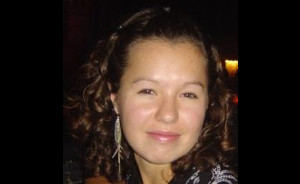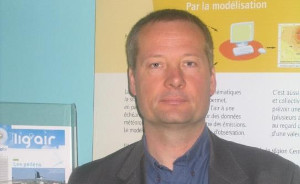M2-AIR: Indoor and outdoor atmosphere
The AIR major is intended to provide trained physical chemists with a specialized set of skills to solve atmospheric problems, in terms of recording measurements, understanding phenomena, monitoring regulatory compliance and mitigating atmospheric pollution.
This curriculum has been designed around three pathways (one dedicated to research the other two professional), showcasing the various occupations focusing on the atmospheric environment and relying on a common core of knowledge.
Program instruction corresponds to the needs of firms and public-sector organizations assigned to: monitor air quality, model atmospheric pollution, control industrial emissions, filter and treat air, achieve the highest state of cleanliness, design and audit facilities operating in controlled atmospheres, and ensure both environmental and personal protection.
Presentation of the proposed course and of the trades on which the M2 AIR leads (french)
Upon completion of the second-year Master's (M2) program
- Project Manager / Research Specialist / Design Engineer
- Consulting Engineer with an audit firm
- Sales Engineer working for :
- Local and regional authorities, national institutes and air quality management agencies
- Industry (e.g. pharmaceuticals / construction / food processing / nuclear / microelectronics / transportation / energy)
- Consulting or design offices
- Public health agencies
Following a Ph.D. degree
R&D Engineer in public or private sector organizations, researcher with a private or public entity, research professor.
| Permanent employment : | VERITAS Testing & Certification / Tech Systems / AASQA (air quality monitoring) / Research laboratories |
| Short-term employment : | Cap Air (Rincent Environnement) / CNRS laboratories / etc. |

After earning my 3-year Licence degree in Sciences and Applications with a major in Chemistry from the University of Paris Diderot, I enrolled in the Environmental Sciences and Engineering Master's program in order to advance my training in the atmospheric sciences and specifically in the area of trace element analytical methodologies. I'm currently employed as a Design Engineer working with chemical analysis techniques as applied to various space missions (for the likes of NASA and ESA).
Carol P.

With a university background in chemistry, I decided to specialize in the study of atmospheric pollution during my Master's coursework and then earn a Ph.D. in Environmental Sciences and Engineering. I currently run an air quality monitoring association, in overseeing a staff of 11 and handling both the external communications and public information duties. My role entails validating study projects and shaping strategy, particularly as regards air quality monitoring.
Patrice C.
A common core of instruction offering a solid set of both theoretical and practical skills in the fields of: chemistry, atmospheric dynamics and radiation, gaseous and particulate pollutant metrology, and modeling of atmospheric emissions.
Specializations available along two paths: the treatment of industrial effluents, persistent pollutants, tools for managing emitting activities, and challenges inherent in sustainable development (focusing on Outdoor Air professions); and bioaerosols, ventilation, air contamination transfers, and installation design (Indoor Air professions).
When opting for the Research pathway, a half-time internship over the first semester will expand to full time during the second semester. Research thesis defense to be held in June.
Along the Professional pathway, an in-company apprenticeship, set up as a work-study program alternating with coursework during the academic year (September-January, April-June) and on a full-time schedule the rest of the year.
Presentation before the jury in September.
Proposed internships / training topics for the M2 AIR Research major in 2020-2021
Link to the research internships proposed for the year 2020-2021 |
Academic Program Heads | Isabelle Coll - Evelyne Gehin - Karine Desboeufs |
 |
Secretary's Office | Master SGE - Secretary |







